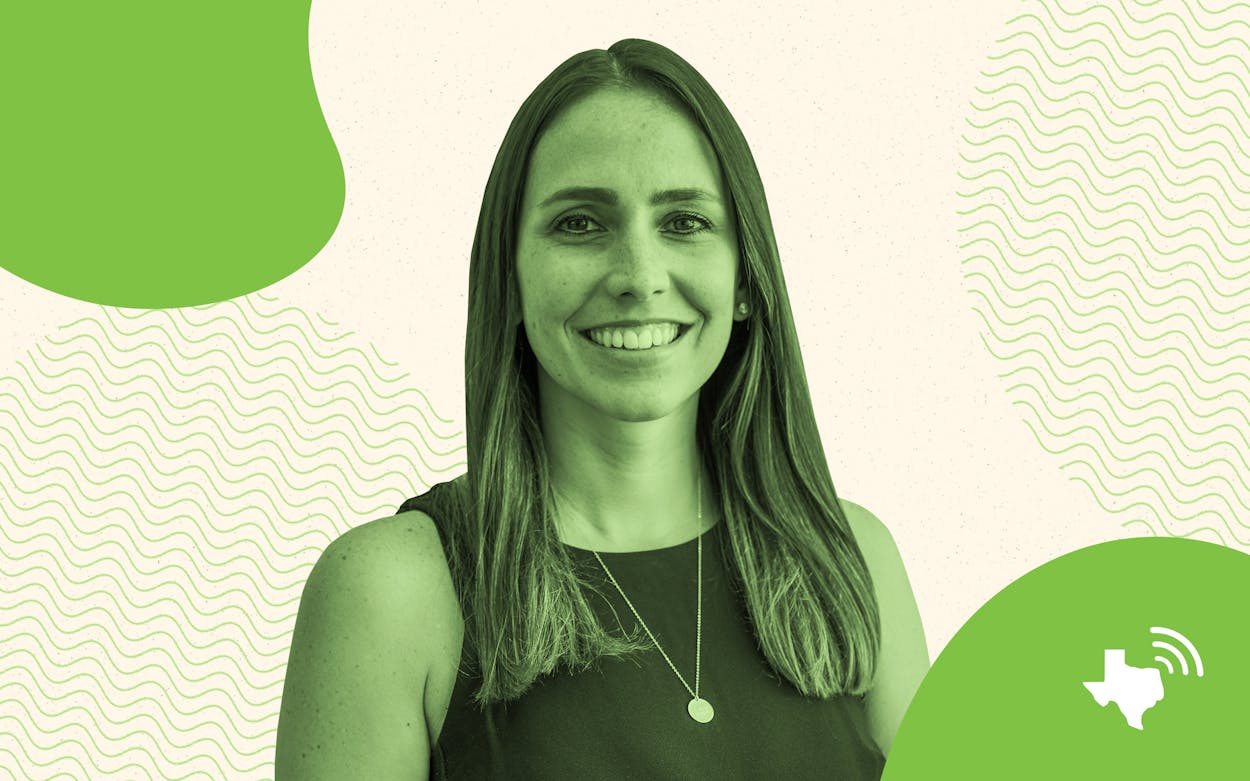The distinction is subtle but important: Dr. Livia S. Eberlin is fighting cancer not by working on curing it, but by offering patients more accurate diagnoses and more effective treatment. Her breakthrough, the MasSpec Pen, often called “The Cancer Pen,” allows surgeons to quickly differentiate cancerous tissue from healthy tissue during surgery, shortening the surgery and potentially cutting back on recurrence by allowing them to know what to remove and what to leave intact.
Subscribe
Earlier this month, for her efforts, Dr. Eberlin was the recipient of a MacArthur Foundation Fellowship; often called a “genius” award, it comes with a no-strings-attached five-year fellowship award of $625,000. And while she didn’t even know she was being considered, the award recognizes “extraordinarily talented and creative individuals as an investment in their potential.”
Her work on the MasSpec Pen, which is currently in trials at Texas Medical Center in Houston, began just after she joined the faculty of the University of Texas three years ago, and she’s now the first UT-Austin faculty member to receive a MacArthur fellowship this century. Previously, Eberlin appeared on Forbes’s “30 under 30” list and was named a “Science Super Hero” by the Discovery Channel. The MasSpec Pen also won an Interactive Innovation Award at March’s South by Southwest Conference.
We spoke with Dr. Eberlin Monday afternoon in Austin about the honor, the future of cancer research, and how she’s adjusting to bona fide “genius” status.
Some highlights:
On Finding Out She’d Won
They literally just call you. It was so completely unexpected. I was just sitting in my office. I was working on a research grant and I got this phone call and I picked it up and it, I think they immediately say, “Hi, this is the MacArthur Foundation.” And I was thinking, “No way! Wrong phone number.” … I was so shocked. I had no idea. Right. Because it’s a grant, you can’t apply for it. So it’s very different than any other funding mechanisms, where scientists and investigators are working on a grant for like two months. You put so much effort into these applications, but the MacArthur is really completely unexpected. You don’t know who nominated you, you don’t know who wrote the letters of support . . . I was really surprised and very honored.
The Problem She’s Trying to Address
There’s still a big need in surgery to have new technologies to be able to evaluate inside the human body to see if all the cancer has been removed or not. There’s a lot of clinical data that shows that the presence of cancer after surgery increases the chances that the cancer is going to come back. So you really want to be able to determine during surgery how much cancer has been removed. And the majority of the surgeries, the surgeon is going for maximal removal. You want to get it all out and minimize recurrence. I’m in. The problem is, for the last hundred years, this has been done the same way. They take a biopsy from the excised specimen and send it to pathology and then you have to do tissue processing and that takes a while. Not only does it take a while, but it’s quite subjective because you have to process that tissue really fast. And that way you disturbed a little bit of how the tissue looks. So for the pathologist it can be hard for them to tell accurately if this is cancer, not at the margin. And the surgeon literally just waits in the operating room for the results.
What the MasSpec Pen Tries to Do
What we’re really trying to do is improve accuracy of the tissue diagnosis during surgery. So it’s a case where we already know the patient has cancer. And the main treatment option is likely surgery, and we want to make sure that we improve chances of survival by removing as much cancer as possible or helping the surgeon to determine what to remove or not. So there’s huge implications for recurrence. To cut the cancer coming back, but also quality of life. You really want to be able to spare normal tissues. So these are very critical decisions.
On Interest in Science
I think there’s a lot of effort going on right now to increase interest in science, especially at UT. There are several opportunities now to engage younger children and get them interested in science early on. I’m very passionate about increasing representation of women in science, not only at the graduate level but in leadership positions. That’s really what’s key in my opinion, and what’s missing is seeing women as senior professors in departments. And I think by increasing diversity in academia, but also R&D at companies, you can really get more people interested in pursuing science as a career.
On the Future of Cancer
We’re getting so much better at detecting [cancer]. I don’t know if you heard about this, but a lot of people will argue that there’s an overdiagnosis right now, that if we didn’t have these amazing technologies, we may not even ever know that we had a cancer that might have ended up not really developing. So yeah, the data is showing that the cases of cancer are just increasing. I’m really for early detection and being proactive about knowing as early as possible. But I think for a really good part of the future, we’re still going to be using technologies like this to improve treatment.
These quotations have been edited and condensed for clarity.






